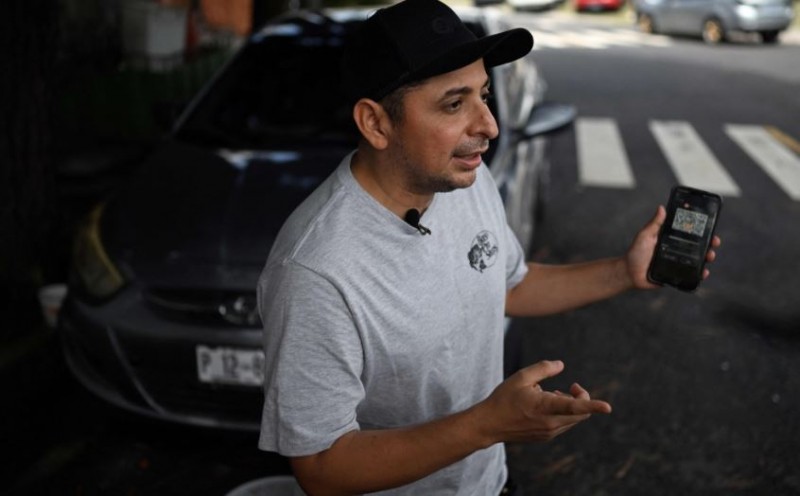
San Salvador: Napoleon Osorio proudly claims to be the first taxi driver in El Salvador to accept payments in Bitcoin. As the country became the first in the world to adopt cryptocurrency as legal tender, Osorio saw his life change dramatically.
He credits El Salvador's President Nayib Bukele’s decision to embrace Bitcoin three years ago as a turning point for him.
"Before, I was unemployed... and now I have my own business," said the 39-year-old entrepreneur. Using an app to accept Bitcoin payments for rides, Osorio now manages his own car rental business.
In 2021, the leader of this Central American country took a bold step, introducing Bitcoin into legal circulation in an effort to boost El Salvador’s economy, which heavily relies on remittances and is dollarized. Despite global concerns over the volatile nature of cryptocurrency, Bukele invested hundreds of millions of taxpayer money into Bitcoin.
Osorio attributes part of his success to John Dennehy, founder of the NGO "My First Bitcoin," who encouraged him to begin accepting cryptocurrency payments. Today, Osorio operates his Bit-Driver brand with 21 drivers and has been able to purchase four rental cars due to Bitcoin’s rising value. As a divorced father of two teenagers, he no longer worries about their educational expenses.
Bukele's move to launch Bitcoin as legal tender on September 7, 2021, aimed to bring the 70 percent of Salvadorans who lacked access to banking into the financial system. To promote its use, he created the Chivo Wallet app, offering Salvadorans free transactions and giving $30 to new users.
However, Bukele's Bitcoin ambitions faced resistance from international financial institutions. The IMF expressed concerns about the cryptocurrency’s official use, which affected El Salvador’s request for a $1.3 billion loan. In August, the IMF announced a preliminary agreement but noted the need to address potential risks.
While Osorio has prospered with Bitcoin, many Salvadorans remain hesitant. A study from the University Institute for Public Opinion revealed that 88 percent of the population had not yet used the cryptocurrency. According to the institute’s director, Laura Andrade, "it was an ill-advised measure that the population rejected from the start."
Despite remittances accounting for one-quarter of El Salvador’s GDP, only one percent of transfers in 2023 were conducted via cryptocurrency.
In an interview, President Bukele acknowledged that Bitcoin adoption had not met expectations. While people could use Bitcoin at various establishments, the overall uptake was lower than anticipated. However, he emphasized that using Bitcoin was voluntary and those who opted in benefited from its rising value.
Bukele confirmed the government holds approximately $400 million worth of Bitcoin in "cold storage," a method of keeping cryptocurrency offline.
Bitcoin's value has fluctuated over time, trading around $52,000 recently, down from its March peak of $73,616. In November 2022, it dipped as low as $16,189.
Some argue that Bukele himself hindered Bitcoin’s adoption by limiting its use in the economy. "There will be no salaries, pensions, savings, or pricing in Bitcoin," said economist Cesar Villalona, noting that these decisions removed Bitcoin’s core functions as money.
Despite the challenges, organizations like "My First Bitcoin" have been working to educate the population. So far, around 35,000 students in public schools have learned how to use Bitcoin. However, according to instructor Luis Contreras, many Salvadorans are still fearful of making the switch due to apprehension about new technology and moving from traditional currency to a decentralized, digital one.